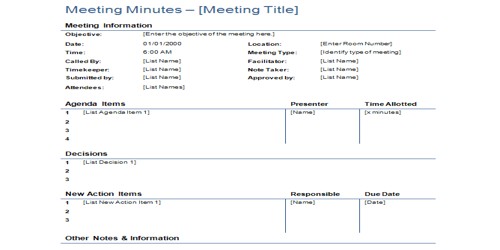Introduction
In Bangladesh woman is half of whole population. Though they are not able to progress their self cause of so many social, familial and religious restrictions.
In our society women are deprived from property rights. Sometimes they are deprived from right to proper education also. From the time of birth, of a Muslim woman place in Bangladeshi society is largely predetermined. While a son is welcome into the world whit cry of “Allah Abkar”, a female child receives only the whisper of the Quranic prayer. Soon after the birth of a girl, her relatives begin the negotiation for her marriage[1]. Because daughters parents think them as overburdened and only giving the daughter in marriage as if, this is the most important duty .They never try to establish a daughter as a dignified person is the society which carries an independent identity. In maximum cases, a married woman’s family does not support her when she wants to go for job. In so many cases a woman has to give up her job for her child or any other sorts of family work as well as compelled to resign.
So many Bangladeshi women especially in village think that her heaven is only beneath the husband’s leg and Hindu woman think that husband is god. And they never say anything against her husband when he is wrong. Hindu women are forbidden to speak the name of their husband directly day by day Muslim women adopted that tradition.
Bangladeshi women are not properly concern about their legal rights especially in case of divorce. Muslim woman think that if the husband pronounce Talak three time, then the divorce is completed. Which is not legal.
All religions are available in Bangladesh but Muslim and Hindus are more and very much numerous. That is why torture of Muslim and Hindu woman is very much discussed.
The religious obstacle are very much dangerous than other obstructions. For example: Bangladesh government has excepted the convention of CEDAW(Convention of Elimination of all forms of Discrimination against Woman) with some reservation in some particular points due to religion restriction of the Muslim as well as other religion. Because our government is not able to remove the impediment for the religious leaders. But some changes are very much important mainly in matter of property right, marriage, divorce and Maintenance. In Muslim community the government imposed some rules and regulation to protect the women right but in Hindu law government could not able to improve the position of woman where as in the neighbor country India imposed so many new laws in the matter of property right, marriage ,divorce, dower etc to improve the human right of their woman.
Rights of a Muslim woman
Property right
Property right of Muslim women has two distinct elements, namely the customs of ancient Arabia and the rules laid down by the Quran and Prophet Mohammad. Under the customary law of pre-Islamic Arabia the women in whatever capacity were excluded from inheritance. The Quran made quite a considerable change of the position.
Right of a wife
A wife get one eighth if there is child and one fourth if there is no child from the estate of her husband.
Right of a mother
Mother gets from the estate of her son one sixth when there is child of her son or when there are two or more brothers or sisters or one brother and one sister of her son and one third when there is no child and not more than one brother or sister of her son.
Right of a sister
When the sister is one she gets half where two or more sisters they get two third. When there is one more daughter and sister’s daughters get double.[2]
Marriage
Marriage in Islam is a contract and every Muslim of sound mind who has attained at the age of puberty may enter into a contract of marriage. Puberty is presumed in the absence of evidence. No one can lead in to contract herself during her minority and such marriage would be held to be void.
Allah Diwaya v. Mst Kmmon Mai[3] By this case it is held that if any Muslim marriage to is held before attaining puberty is void. And any consummation having taken place before the minor had attained puberty it had not destroy her right to repudiate the marriage.
In this case it is also briefly discussed that the important requirements of a marriage to avoid the marriage of minor. By the reference of Syed Amir Ali in the 5th edition the second volume of his book on Muhammadan Law[4] while dealing with the question of the capacity to contract a valid marriage says of page 273:
“As a general rule it may be remarked that under the Islamic Law the capacity to contract of a valid marriage rests on the same basis and depends on the same condition as the capacity to enter in to any other contract.
He then enumerates the following conditions: (i) In the first place the parties must be able to understand the nature of their act, if either of them is non compos mentis or is incapable of understanding the nature of the contract it is void, (ii) In the second place they must be adults and , (iii) In the third place they must be acting of their free will and not under compulsion.”
Then he has quoted from Fatawai Alamgiri Volume I page 377:
5“Among the conditions which are requisite for the validity of a contract of marriage are understanding, puberty, and freedom in the contracting parties that whilst the first requisites is essentially necessary for the validity of the marriage as a marriage cannot be contracted by a majnunor a boy without understanding the other two conditions are required only to give operation to the contract as the marriage contracted by a (minor) boy of understanding is dependent for its operation on the consent of his guardian.”
Registration of marriage
Muslim family law ordinance 1961 made the registration of marriage compulsory and enjoyed a kazi on pain and punishment for marrying any one so that the marriage may be registered. Registration of a marriage and signature of the parties in kabinnama are essential for proving marriage. Kabinnama is a form upon which all the information of the parties are written down with signature and witnesses after getting registration it bears evidentiary value of marriage. No amount of oral evidence can cure the deficiency and no amount of oral evidence is sufficient to prove marriage when plaintiff fails to prove the kabinnama according to law.
Khodeja Begum & others v. sadeq sarkar,[5] The fact of the case the plaintiff submitted a kabinnama to prove the marriage. But in that kabinnama there is no signature of the bride this is why it is very material. That the signature of the parties should be present in the copy. And it is most important document of proof of marriage between the petitioner and the opposite party. But the plaintiff-opposite party did not prove the kabinnama.
In this case it is held that the Muslim marriage is a socio religious contract and the signatures of both the parties are very essential to prove the contract of marriage written in form of kabinnama. In such circumstances no amount of oral evidence will be sufficient to prove the marriage.
Dower
Dower is one of the essential parts of a Muslim marriage. Dower is a promise to be paid by husband to wife. Dower is sum of money or other property which wife is entitled to receive from husband in consideration of marriage.
The amount of dower may be fixed either before or at the time of marriage or after marriage. The amount of dower is generally split into two parts “Prompt dower” which is payable immediately on demand by wife. Mahmuda Khatun v. Abu Sayed[6] in this case it is held that a wife under the Mohammedan Law is entitle to have her prompt dower paid to her husband she can refuse to live with her husband and to give her company as long as the prompt dower remains unpaid. And “Deferred dower” Which is payable only on dissolution of marriage by death or divorce.
Divorce
The most common mode of divorce by man prevalent in Bangladesh is Bedai Talak (Irrevocable divorce) which take effect immediately without requirement of communication to wife for its validity The husband pronounces three times that he divorce his wife and with the third pronouncement the talak becomes irrevocable. With the introduction of the Muslim family law ordinance 1961 the position has changed. Section 7 of the ordinance provides that divorce given by the husband shall not take effect until the husband has given notice to the wife.
Divorce notice shall be sent to the chairman of local administrative unit as union parishad and ninety days have to elapse after issuance of the said notice and within the stipulated period the husband can revoke the divorce. The husband is also to give a copy of the said notice to the wife. The chairman on receipt of the notice would constitute arbitration council for effecting a re- conciliation which if successful would render the divorce in-effective. It is an offence not notifies the chairman about xercise of divorce by the husband. The provision of section 7 of the ordinance apply mutatis mutandis in case of divorce exercised by the wife and the divorce does not take effect un less notice thereof is given to the chairman and 90 days have elapsed thereafter.[7]
The husband can delegate his power of divorce unconditionally or with condition and that is called” Talak-e-Tawfecz”. When condition is stipulated the wife can divorce her husband in the happening of that condition. Now the divorce parties can remarry without the formality of the marriage with third party (see 6) Muslim family laws ordinance 1961. .Marriage can be dissolved by agreement between the husband and wife and if may take the force of Khula or Mubarrat. In the Khula the marriage is dissolved by any agreement between the parties for a consideration paid or to be paid by the wife to the husband, it being necessary condition that the desire to separate should come from the wife. Where devisor to separation is mutual, it is said to be Mubarat.
A Muslim female does not have the right to divorce in the way a male has but she could seek judicial divorce on grounds permitted by Muslim law
A wife is entitled to obtain a judicial divorce on neglect to failure of the husband to provide maintenance for two years. But if the wife refuses herself to her husband without any lawful excuse and deserts her husband or otherwise willfully fails to perform her marital duties. She has no right to claim maintenance and cannot obtain a decree for dissolution of marriage one the ground of nonpayment of maintenance.
Maintenance
The Arabic equivalent of “maintenance” is Nafqah which literally means “what a person spend over his family.” In legal sense maintenance signifies and includes three things: i) food, ii) clothing, and iii) lodging. Fatawai Alamgiri vol.1, p.732: maintenance comprehends food , raiment and lodging, though in common parlance if is limited to the first.[8]
Maintenance means and includes all the expenses of the wife provided by the husband as per the terms and condition of the family law. In according to the Muslim law the father is bound to maintain his daughter until she is marriage. But a father is not bound to maintain a daughter who is capable of being maintained out of her own property. A Muslim mother is entitled to maintenance from her son. If she is poor. A Muslim husband is bound to maintain his wife if the wife remains faithful to him and obeys his reasonable orders. If the wife refuse herself to her husband without any lawful excuse and deserts her husband or otherwise willfully fails to perform her marital obligations she has no right to claim maintenance form her husband.
Majiba Khatun Bibi v. Paghalu Mahommad[9] In this case it is held that if the wife refused to go back to her husband’s house without any sufficient cause. Where the husband attempt to take her back. In Ameer Ali’s Mahammadan Law volume II 5th edition 407[10] it has observed follows:
“The right of the wife to maintenance is subject to the condition that she is not refracy tury or dose not refuses to live with her husband without law full cause.”
But if the wife refuses to perform her marital obligation on the alleged of the husband to pay the prompt dower the husband will not be absolved of his liability to maintain his wife.
A Muslim woman in the event of divorce is entitled to maintenance by the husband till the expiry of the period of Iddat. A husband maintains wife to the best of his ability so long the relationship remains good .But if the relationship is estranged the condition of the wife is very difficult.
Guardianship of children
The term “guardian” is define in the Guardians and Wards Act as a minor person having the care of the person of a minor pr of his property, or of both his person and his property and no doubt the individual who has by law the right and duty of disposing of a boy or a girl in marriage may be said to have , for that limited purpose, the care of his or her person.[11]
In Hanafi law mother retains custody until age seven for doys or nine for girls. Mother is entitle only to the custody of the person of her minor child up to certain age according to the sex of the child. But she is not the natural guardian. A mother may lose custody of her children particularly her daughter. If she re-marry a stranger, the father is the legal guardian of his children or if he is dead his executor is the legal guardian of a children. Mohammd sidiq v. Sadiq Safoora[12] In this case it is held that a Muslim father is the legal and the natural guardian of his children until they attain the age of twenty one under the general law of the land, namely, Majority Act 1875. The mother has the right of custody or hizanat up to the age of 7 years in the case of male child and upto the age of puberty in case of female child. Even during this the right of hizanat or custody is to be exercised under the supervision & control of the father who is responsible for the maintenance of the children. The right of hizanat can be lost under certain circumstances.
Rights of a Hindu woman
Property right of a Hindu woman
Generally, a Hindu wife has no right to appeal to divide the property for her own share. But when that property is divided and distributed among the son then the wife get a part of that property equivalent to a son. The Hindu wife will get possession of her share of the property for enjoyment for her life time only.
Right of a Hindu widow
When the husband has no son the widow gets the husband’s property inherently. In this way she owns the promissory right over the whole property .But she becomes owner of the property for her life term only. Grossly she has no right to sell but for grave necessity she can sell minimum portion.
Right of a Hindu mother
A mother as well as a widow in Hindu community has right to claim a share of property of their sons. According to the section 18 of Hindu Act, 1937 a widow mother gets her husband’s share of property inherently. She is also a heir of the property with her son. She is entitled to get an equal share of her sons.
A Hindu mother gets her dead son’s property inherently like her son’s son but that property is not treated as striedhana.
Right of a Hindu daughter
Unmarried daughter gets one fourth share of a son. The mother of the sons is entitled to get an equal share and the daughters to a one fourth share.[13]
The unmarried daughter takes one-fourth share and the son take the remaining three fourths in the case of the property being small.[14]
Finally, A Hindu woman has limited title over her husband’s property. She becomes the owner of the property for enjoyment in her life time only. After her death the property goes to her husband heirs.
Hindu Marriage
According to the Hindu law is body for the performance of religious duties. It is deemed as a holy union in Hindu law. It is also considered to be a union of flash and flash and blood and blood. It is religious sacrament and not a civil contract.[15] According to Hari Shing Gour :
“A marriage is an alliance between a man and woman recognized by a law .It is sometimes defined as the act ceremony or process by which the relationship of husband and wife is constituted. It is to be pointed out that the meaning of marriage in different countries.”
Forms of marriage
The ancient Hindu law recognized four forms of marriage which are approved and another four and unapproved fours.
The approved forms of marriage are as follows: 1. Brahma, 2. Arsha, 3. Daiva and 4. Projapatai . These four forms of marriage the only forms now recognized in the brahma and the Asura forms.
BRAHMA Marriage
In the accordance of Manu, the gift of a daughter after decking her with clonally garments and honoring her by presence of jewels to a man learned in the veda and of good conduct whom the father himself has invited is called the Brahma rite
In the Brahma marriage the marriage took the form of gift the bride to bridegroom who is versed in the Vedas and is of good character. So when the guardian of the bride gives the bride in marriage without receiving any consideration from the bridegroom for the girl in marriage this marriage is called Bharma. Now this type of marriage takes place within the all caste of Hindu.
ASURA Marriage
It amounted to a sale of the bride. Here the bride’s price is the consideration for the gift by the father of the daughter in marriage. So when consideration is received it is called Asura
Essential part of a marriage
Under the Hindu law two ceremonies are essential for the validity of a Hindu marriage:
(1) Invocation before the sacred fire and
(2) Saptapadi, that is the taking of sever steps by the bridegroom and the bride jointly before the sacred fire.
The marriage becomes completed when the seventh step is taken till then it is imperfect and revocable. Consummation is not necessary to make a marriage .But it is to be noted than no religious ceremonies are necessary in the case of marriage of widow.
The mere exchange of garlands does not constitute a valid marriage. It has been reported in the following Bangladeshi case.
Amulya Chandra Modak v. The state[16] In this case appellant brought a case one appeal against the decision of the assistant session judge, second court, Mymansingh under section 493 of the Penal code 1860 sentenced to suffer rigorous imprisonment for five years and a thousand taka fine prosecution case kalpana rani age 18 years old was induced into believing that she was married to the appellant on the ground that they secretly exchanged garlands and thereby she consented to cohabit with the appellant and she become pregnant. The accused appellant pleaded not guilty to deceit by saying that various facts were false. The learned judges opined that kalpana rani was matured enough to understand that various rites like viva homa and saptapadineed to be performed which were not performed. Also according to the judges it is customarily among in Bangladesh Hindu’s of all castes that some relations remain presence and the bride is made to put on new clause bangles and vermillian mark on forehead .Kalpana could not have believed according to the judges that while by mere exchange of garlands the accused become her lawfully married husband. The court acquitted the appellant from the charge of deceit.
Presumption of Hindu marriage
Where it is proved that a marriage was performed, the court will presume this: (1) It is valid in law, (2) The necessary ceremonies has been performed, and (3)It continued during the life time of either party.
Abdur Rahman v Upendar Narayan Majumdar[17] In this case it has held that there is a presumption of marriage rather than anything else when a man and woman are proved to live together as husband and wife the laws presume unless contrary is clearly proved that they are leaving together as a consequence of a valid marriage.
No marriage is valid it is made between person related to each other within the prohibited degrees unless such marriage is sanctioned by custom.
The following are the rules regarding prohibited degrees
(1)According to the Hindu marriage Disabilities Removal Act 1946 marriage between parties belonging to the same gotra or pravara was invalid. After this Act such marriage was validated.
(2)A man can not marry a girl of same gotra or pravara. This rule does not apply to sudra as the sudra have no gotra of their own.
(3)A man can not marry a girl who is his sapinda. According to the Bengal school a man can not marry a girl
(a) If she is within 7th degree in descent from his father or from one of his father’s six ancestor in the male line.
(b) If she is within 5th degree in descent from his maternal grandfather or from one of his maternal grandfathers four ancestors in the male line.
(c) If she is within the 7th degree in descent from his father’s three technical bandhus or from one of their six ancestors through whom the girl is related to him.
d) If she is within the 5th degree in descent from his mothers three technical bandhus or from one of their four ancestors through whom the girl is related to him
Explanation: A girl, though related within the degrees mentioned above may be taken in marriage if she is removed by three gotres from him.
Relationship by marriage is not by itself an important to marriage. Thus a man may marry the daughter of her wife’s sister.
Registration of Hindu marriage
There is no marriage registration system for Hindu marriage in Bangladesh. It is surprising that there is also no Hindu marriage register in the country. So of any Hindu woman suffer in the hands of in-laws she does not get legal help.
That why marriage registration needs to be obligatory to all people irrespective of religion cast and creed because marriage registration does not disregard religion.
But leaders of Hindu have different views. They think marriage registration is unnecessary for Hindu people. Because Hindu boy in single marriage and the number of those who go for polygamy is very few. The leaders say Hindu woman will be repressed more if marriage registration and divorce law are enacted.
Dower
The concept of dower is not recognized by Hindu law. The Vedas prescribe that a dowry be given by the bride’s family to the groom. The Rig Vada states that cows and gift by the father of the bride to the daughter accompanied the brides procession. Kakshivat says he become rich by the father-in-law giving him 10 chariots and minds and 1060 cows during the marriage ceremony. The ancient custom of kanyadan, Where the father present his daughter with jewelry and clothes at the time of her marriage , and vardakshina where the presented the groom with kith and kin are, in essence the dowry system.
Divorce
The concept of divorce is not recognized under the orthodox Hindu law. Manu believed that the duty of a wife continues even after death. She can never have a second husband .The reason is that a marriage from the Hindu point of view creates an indissoluble tie between husband and wife. Unless divorce is allowed by the custom neither the party. Even the conversion to another faith or desertion does not affect the dissolution of marriage in Hindu law.
Maintenance
The position of Hindu woman is almost identical in the matter of maintenance. On marriage the wife passes in to the dominion of her husband and thereafter lives under his protection .Thus he is under the liability to maintain his wife independent of his possession of property.
In the case of children’s maintenance there is a interesting point that is an illegitimate son can claim a right to maintenance but an illegitimate daughter is not granted the same claim. Moreover a widows right to get maintenance from her husband’s estate until remarriage. Sometimes a Hindu widow gets maintenance from her father’s property.
Matilal Sarcar & others v. Brajabashi Biswas & other[18] In this case it is held that under the Hindu law daughter on marriage cases to be member of her father’s family and becomes a member of her husband’s family and she is entitled to be maintained by her husband after the husband’s death out of the husband’s estate but if the husband leaves no estate then her father-in-law if he has no sufficient property of his morally, though not legally bound to maintained her but after his death she acquires a legal right to maintained out of his estate.
Guardianship
In the Hindu law father is the natural guardian of a minor child. On the death of the father the mother is the natural guardian .In the case of illegitimate child only mother is the lawful guardian.
Now the most interest think is that if a father changes his religion he will not lose custody of his child but a mother does upon her religious conversion the child should be removed from her custody if she changes her religion. A mother loses her preferential right to the guardianship of the children of her first marriage, except where such remarriage is permitted by custom. But nothing either in the Hindu law or in statutory law makes it obligatory on a court to remove her from that position.
Perm Kaur v. Harnan[19] It was held that where a widow mother might remarry by custom irrespective of the Hindu Widow’s Remarriage Act 1856 the mother did not by her remarriage forfeit the guardianship of her children. All remarriage authorized by this Act deprived mothers of their natural guardianship although they might be proper persons to be appointed guardians her too courts have assessed the best interests of the chill in determining guardianship.
Rights of Women in Muslim and Hindu Law:
A Comparative Study
Let us compare the positions of the Hindu and Muslim woman. These are based on practices and beliefs known to till exist widely within the large number of Hindu and Muslim castes. See the following facts for comparison.
Marriage
The lows and rights of marriage and divorce are undefined in Hindu law. The Hindu woman leaving her with very little advantages. In the Hindu law the woman can only marry within her own caste moreover her horoscope must match that of the intending bridegroom family. And the family of the girl has to an enormous dowry to the bridegroom. Remarriage is large problem, because there is no provision for divorce. In Hindu marriage the woman has no legal status because the marriage is not register. In Bangladesh there is no Hindu marriage register. This is why they have no legal prove of their marriage .When a Hindu woman suffers in the hands of in-laws she does not get any legal help. The most important thing is that in Hindu law child and infant marriage is encouraged.
“A man aged thirty years shall marry a maiden of twelve who pleases him or a man of twenty four a girl of eight years if his duties would be impeded, he must marry sooner.”[20]
Moreover a Hindu marriage is not a civil contract a Holy union in Hindu law. It is also considering being a union of flesh and flesh and blood and blood
One the other hand in Muslim law the provision of marriage and divorce strongly defined. A Muslim woman can marry any Muslim of her choice. If her parents choose a partner for her, her consent must be taken.
“Also prohibited are the women who are already married, unless they flee their disbelieving husbands who are at war with you. These are GOD’s commandments to you. All other categories are permitted for you in marriage, so long as you pay them their due dowries. You shall maintain your morality, by not committing adultery.
Thus, whoever you like among them, you shall pay them the dowry decreed for them. You commit no error by mutually agreeing to 8any adjustments to the dowry. GOD is Omniscient, Most Wise.”[21]
“Those among you, who cannot afford to marry free believing women, may marry believing slave women. GOD knows best about your belief, and you are equal to one another, as far as belief is concerned. You shall obtain permission from their guardians before you marry them, and pay them their due dowry equitably. They shall maintain moral behavior, by not committing adultery, or having secret lovers. Once they are freed through marriage, if they commit adultery, their punishment shall be half of that for the free women. Marrying a slave shall be a last resort for those unable to wait. To be patient is better for you. GOD is Forgiver, Most Merciful.”[22]
Registration of marriage is very much important .It is compulsory. Muslim Family law ordinance 1961 made the registration compulsory and the Kazi on pain and punishment. Moreover a Muslim marriage is a civil contract between the two parties.
Divorce
In Hindu Marriage there is no word like divorce .The Hindus believed that the duty of wife continues even after death. She can never have a second husband. A Hindu woman cannot remarry.
But in Muslim law divorce is permitted. Both husband and wife can do it. In Bangladesh the most common mode of divorce is Bedai Talaak.
Dower
In Hindu law the provision of dower is no applicable. But there is provision of dowry which is given by the bride’s family to the groom. And when the bride’s family cannot pay up to the amount demanded by the in-laws often the in-laws make demands in excess of those made of the time of marriage .When the deadline specified runs out the bride is burned in often gruesome fashions. At least 5000 woman die each year for not bringing in enough dowries.
But in Muslim law dower is a pre-requisite of a marriage is to be paid by husband to his wife. The amount of dower should be equitable. The husband and the wife can mutually make any adjustment to the dower. For feting of the dower does not apply to believers. In Islam dower is a gift from husband to his wife.
“You shall give the women their due dowries, equitably. If they willingly forfeit anything, then you may accept it; it is rightfully yours.”[23]
Remarriage
In Hindu law remarriage is a big problem. There is a big no provision for remarriage .Even if the wife is run away from the harsh husband she could never get remarried as long as she is in the confines of Hindu tradition .A widow is not allowed for remarriage too.
On the other hand in Muslim law a woman is allowed for remarriage if the husband is harsh and incapable to born child. Muslim widow is allowed to remarry and remarriage is the responsibility of the Muslim society.
Maintenance
In Hindu law a illegitimate daughter cannot get maintenance from her father when a illegitimate son get. But in Muslim law both son and daughter get maintenance from their father.
In Hindu law the wife passes into the dominion of her husband and thereafter lives under to maintain his wife after the death of husband she has no right on her husband property. On the other hand in Muslim law the wife get maintenance from her husband’s property after her husband‘s death.
Guardianship
In Hindu law father is the natural guardian of his children when the father is dead the mother is the natural guardian of the children. But in some cases mother lose her right of guardianship .When she remarry a stranger but if the remarriage is permitted by the court she did not lose her right to guardianship.[24]
On the other hand in the Muslim law father is the natural guardian of a child and the mother is only a custodian. After the death of the father, father’s executor is the legal guardian of those children not the mother.
Moreover Muslim mother lose her right to custody when she remarry a stranger. Whatever the remarriage is permitted by the court.
Power of inheritance
In the Hindu law the woman has no right to inheritance. They get property for life time enjoyment only. After her death the property go to her husband’s hair.
But in Muslim law the woman enjoyment enjoy property and inheritance right. She can also conduct her own separate business. A Muslim woman can transfer her property to her hair. It is her legal right so nobody can bar her to do so.
Property right
According to the Bangladeshi law Hindu woman get only a limited share of a property. They have been deprived of the right to property of their father and husband for survival. The remain dependent on parents during their childhood on husband in youth and children in old age. A Hindu wife has no right to appeal to divide the property for her own share and a widow gets her husband’s property if the husband has no son. Moreover a daughter cannot receive any property. A Hindu woman gets limited property for her life interest so she cannot transfer the property.
But a Muslim woman has a fixed share on her husband property. She can apple to divide the property for her own share And it is her legal right so no can deprived her from her property. The most different think is that a Muslim woman can transfer her property to her heir. She can use the property as she wish. A Muslim widow has a legal right on her husband 8property. A Muslim daughter gets a share from her father’s property as the brothers get. But the proportions of the property are not equal. Daughter gets half what the son get.
Conclusion
After the comparative discussion about the right of Hindu woman and Muslim woman it is apparent that Muslim women are enjoying more benefit than Hindu women in the matter of divorce ,property right, dower, inheritance power. Hindu daughters, wives and widows are totally deprived of the property right. And the Hindu woman has no power to transfer any property to her heirs rather get the property only for life time enjoyment.
In Hindu marriage, there is no provision for divorce. Which is the most disgusting thing in Hindu community. Because by force no relation can be restored. After considering the situation the provision of divorce is must in Hindu marriage. To implement the provision of divorce is no imposable work because in the neighbor country the India has already regulated laws for divorce. In India Hindu Marriage Act 1955 section 13 provide for divorce. One the other hand in Muslim community women are gets this benefit then why the Hindu women are not.
There is no provision for registration of Hindu marriage .Only for that cause every year thousands of women are being deprived of their legal rights. Whereas in India registration of Hindu marriage is present in accordance to section 8 of The Hindu Marriage Act 1955.
Another dangerous thing in Hindu law is child marriage. They think if they already had a relationship with a man they could not make relation with another man. But only for child marriage thousands of girls lost their life in a year.
Though the government is competent enough to pass a provision in Hindu law to protect the right of Hindu woman but the government did not initiate any step to avoid the conflict in the Hindu community as they are minority in our country.
There some discrimination are present in Muslim law. The discrimination is that a Muslim son get double a daughter of left property of Muslim. Whereas son and daughter work together in a family. Moreover in some case daughter work hard than a son.
In the case of divorce wife cannot divorce her husband but she want divorce from her husband .Whereas the husband give divorce .This is most bad discrimination and ultravires of the natural justice.
In Muslim law mother is entitle only to the custody of the person of her minor child up to a certain age 7 foe boys 9 for girls Whereas in Sudan mother can keep custody up to puberty for boys or up to marriage for girls.[25]
Our government has to work more to ensure the right of a woman .The government should avoid the religious barriers in this respect to show the justice to the woman.
Bibliography
Books:
1. Patoary, A.B.M. Mofijul Islam, Hindu Ainer Mulniti, 2nded. (Dhaka: Mallika Publication House,1998).
2. Ahmad, Aqil, Text Book of Mohammedan Law, 21thed, (Allahabad : Law Publishers, 2004).
3. Uddin, Badar, Hindu law, 3rd ed, (Dhaka: Mukta Law Book House, 2003).
4. David, Pearl, A Texbook on Muslim law, (Guildford: Billing & Sons 1979).
5. Faiz,Uddin, Muhammad, A Text Book on Islamic Law, 1st, (Dhaka: Shams Publication, 2008).
6. Tyabji, Faiz Badruddin and Tyabji, Muhsin, Muslim Law, 4th ed, (Bombay: P.N.M. Tripathi, 1968).
7. Gazi Rahman, Samsur, Muslim Ainer Vassho, (Dhaka: Khosroj Kitab Mohal, 2001).
8. Noshirvan, H. Jhabvala, Hindu Law, (Mumbai: Educational and Law, Publication, 2002).
9. Pereira, Faustina, The Fractured Scale: The Search for a Uniform Personal Code, (Calcutta: Mandira Sen, 2002) available at/ www.googlebooks.com.
Articles:
1. Biswas, Zahidul Islam, The Confusions and Uncertainties Thwarting Family Courts in Bangladesh, Published in Bangladesh Journal of Law, Vol. 10 Nos. 1 & 2, (June & December) 2006.
2. Jennifer Morris, The Changing Face of Women In Bangladesh, (American Association of Law Libraries), in www.onlinewomeninpolitics.org/…/bangla_change_face.htm.2002.
Web Sites:
1. Woman in Indo-Aryan societies. www.geocities.com/Athens/Agora/4229/in3.htm.
2. Woman in Islam. www.submission.org/woman/
















